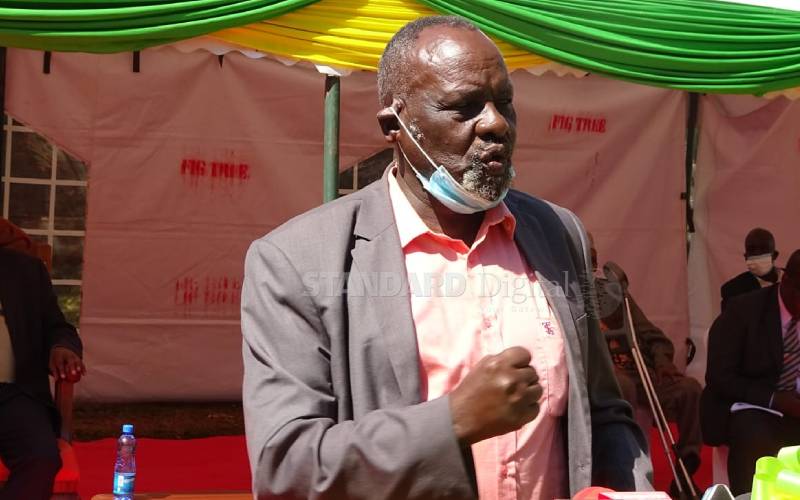×
The Standard e-Paper
Kenya's Bold Newspaper

Dickson Sitienei narrates how members of the Talai clan were forcefully evicted from their land in Kericho and transported to Tse-Tse fly-infested Gwasii Hills in Homa Bay County. [Nikko Tanui, Standard]
Members of the Talai clan and the Kipsigis community in Kericho County on Friday narrated their frustrations in seeking justice for human rights violations during the British colonial era in the country.